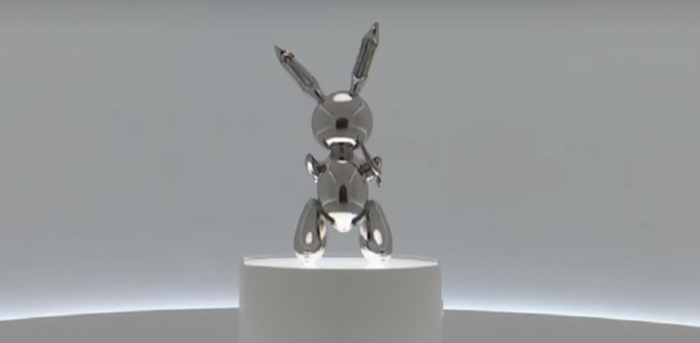Art and Activism
Columnist Mahi Shah explores the links between the art world and social concerns, and the activist art inspired by these ties

Arguably, ‘what truly constitutes art’ could be a huge category. As art is, technically, a form of creativity or way of expressing oneself, the limits are seemingly endless. However, in the sphere of the increasingly commercialised art world, art is no longer based solely on imaginative power, but appears often to be grounded in and victim to societal contexts
Recognising the flaws within the art world is perhaps done most powerfully when examined internally, with art itself being used as a tool to self-assess the base of the creative form. The Guerrilla Girls, for example, are a collective of anonymous women, who have adopted the names of undervalued, deceased female artists in an attempt to oppose the gender and racial inequality within the art world; a world which they criticise from inside. Their works are exhibited even in the galleries which are often responsible for the very subject of their criticism. By working against the domination of the art world by white men, these women aim to raise awareness of the existing limits of artistic representation and express the need to read art history from a more inclusive perspective.
Guerilla Girls founder, under the pseudonym Frida Kahlo, has criticised the misconception that the art world is an embodiment of liberal ideals, instead highlighting how it enables a hypocrisy through its use of funding from certain individuals and groups. The Sackler family, notable in relation to the US Opioid Crisis, exemplifies this exact issue. Their link to global art galleries has brought about accusations that they are ‘art-washing’ their damaged reputation. The Guerrilla Girls, who have criticised artistic institutions for their public endorsement of the Sackler family, emphasise the inextricable link between art and social context; more subtly, they have castigated the agency of institutions which we may instinctively esteem so highly in assuming their supposed encouragement of liberal creativity.
the firm’s sponsorship of Britain’s most notable cultural attractions redefines BP’s perception as a firm focused on cultural progression, brushing over their ties with climate change
‘BP or not BP?’ are a national theatre group who, similar to the Guerrilla Girls, ‘invade stages and cultural spaces’ to criticise the dependence of cultural institutions on the oil company which is regularly identified in regards to their contributions to climate change. The group challenges BP’s sponsorship of artistic spaces, and specifically the deal which began in 2018 between the oil company and the British Museum, the National Portrait Gallery, the Royal Opera House and the Royal Shakespeare Company.
The basis of their opposition to the sponsorship is similar to the aforementioned ‘art-washing’ - BP’s investment in the cultural sphere is, it can be presumed, supposed to distract from their global activities. Aiming to resonate with the so-called ‘cultured elite’, the firm’s sponsorship of Britain’s most notable cultural attractions redefines BP’s perception as a firm focused on cultural progression, brushing over their ties with climate change.
In February this year, activists from the group protested in the British Museum against its relationship with the sponsor BP, stressing the firm’s role in helping the British government access Iraq’s oil. The protest group also criticised the traces of colonialism present in the museum’s exhibition ‘I am Ashurbanipal’, which featured artefacts that had been removed from modern day Iraq at the time of the Ottoman Empire. BP’s sponsorship of the exhibition appeared to undermine the power of the art to express a cultural history, casting a shadow over the exhibition which ceased to be independent of the company’s infliction of damage on the nation.
Is it possible that the artistic sphere could ever be truly independent of political and socio-economic associations
With so many global cultural institutions endorsed or funded by firms like BP or adorned with names like the Sackler Family, is it possible that the artistic sphere could ever be truly independent of political and socio-economic associations? The artistic world claims to provide a platform for everyone in their individuality, but to say such expression is liberated would be to discount the inequality and hypocrisy of the industry; to deny the flaws which have funded the art world’s growth and existence.
Activism such as that demonstrated by ‘BP or not BP?’ manifests a direct challenge to this injustice by publicly destabilising the power of gallery exhibitions. Whilst this may be different to the Guerrilla Girls’ internal deconstruction of the art industry’s flaws, their activism in a resistance to the imposed structure of the global exhibition of art is fundamentally shared. In art’s current overwhelming tie to corporate sponsorship and its lack of transparency concerning the liberal, progressive nature it appears to preach, an activism which truly scrutinises the representation of art is perhaps one of the most powerful channels of expression, of staying true to what, on some level, we would hope that art has the capacity to be: creative, thoughtful activism.
 News / Uni partners with controversial Hong Kong university2 April 2025
News / Uni partners with controversial Hong Kong university2 April 2025 Comment / More Cambridge students should study abroad 1 April 2025
Comment / More Cambridge students should study abroad 1 April 2025 News / Hundreds of jobs to be cut at Cambridge University Hospitals1 April 2025
News / Hundreds of jobs to be cut at Cambridge University Hospitals1 April 2025 Lifestyle / A Goodchild’s Cambridge Confessional: Volume 23 April 2025
Lifestyle / A Goodchild’s Cambridge Confessional: Volume 23 April 2025 News / Caius clock hand returned nearly 100 years after student prank31 March 2025
News / Caius clock hand returned nearly 100 years after student prank31 March 2025



